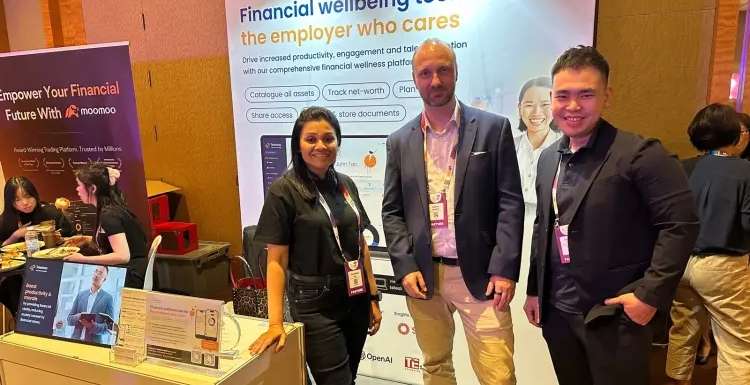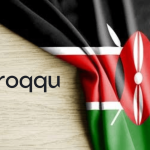Singapore-based fintech startup Teleskop has announced it will cease operations by 31 July 2025, marking a swift end to its two-year run.
The company, known for its financial wellness and legacy planning app, confirmed in a notice on its website that users will retain access until the shutdown date, after which all personal data will be deleted.
Active subscribers have been assured of refunds, according to the statement:
If you have an active subscription, a refund will be made to your card in due course.
Teleskop’s founders praised the new government solution as “very well executed” and “more accessible,” acknowledging that it rendered their private venture commercially redundant.
In a farewell note, they expressed hope that Teleskop has helped elevate awareness about financial clarity and the value of planning. The note reads:
As founders, we started Teleskop because we saw a gap and understood the consumer pain point on legacy planning. Now we believe the best home for such tools is integrated into Singapore’s national digital infrastructure under MyLegacy@LifeSG.
In this context, it doesn’t make much commercial sense to continue with Teleskop,” the founders add.
We hope we’ve left a small but meaningful impression on the importance of financial clarity and legacy planning, and that you’ll continue to move forward with your plans.
About Teleskop
Teleskop was a Singapore-based fintech startup founded in 2023 by Martin Pickrodt and Chandrima Das. The platform focused on financial wellness and legacy planning, offering users a secure “digital vault” to aggregate and manage a range of financial and non-financial assets.
The startup sought to simplify legacy planning for individuals by combining asset aggregation tools with document storage and access-sharing features, an offering that initially filled a noticeable gap in Singapore’s financial planning space.
However, the company’s closure follows the Singaporean government’s recent introduction of My Legacy, a Digital Public Infrastructure (DPI) initiative integrated into LifeSG.
What Is MyLegacy@LifeSG?
MyLegacy@LifeSG is a government-led digital service in Singapore, integrated within the broader LifeSG platform, a one-stop portal that connects citizens with key government services throughout different stages of life.
Here’s what each part means:
- MyLegacy: This is the legacy planning component of the service. It helps Singaporeans prepare and organize important end-of-life matters such as wills, CPF nominations, insurance policies, funeral preferences, and more. It often includes features like a digital document vault, non-financial asset registry, and sharing options with trusted individuals.
- @LifeSG: LifeSG (short for Life Singapore) is the government’s flagship digital platform designed to provide personalized services for citizens, covering life events such as birth registration, childcare enrollment, retirement planning, and now, legacy planning.
The new product, according to users familiar with its design and operations, is Singapore’s national effort to make legacy and estate planning easier, more secure, and more widely accessible through a trusted, government-backed digital infrastructure.
Why It Matters
Finance experts hold the view that Teleskop’s shutdown marks a significant moment in the evolving relationship between private innovation and government-led digital infrastructure.
The company’s closure underscores how quickly public sector solutions, when well-executed, can outpace startups in addressing societal needs, in this case, financial clarity and legacy planning.
It also reflects a growing trend in which governments across Asia are investing in digital public goods that offer citizens streamlined, secure, and inclusive access to essential services, directly challenging the value proposition of some early-stage fintech ventures.
Talking Point
The shutdown of Teleskop presents a powerful case study that fintech and other startup ecosystems, particularly in Africa, should not always view a shut down as a failure, but as another strategic pivot with lessons for long-term systemic impact.
The startup did not collapse under pressure; it stepped aside because its mission was effectively absorbed by a national digital infrastructure. This is significant. It illustrates that private innovation, when deeply aligned with public needs, can influence government agendas, set standards, and even inspire policy change.
For African fintechs and startups operating in governance-weak or infrastructure-poor environments, this is a clear sign: innovation can and should challenge governments to do better. Many African states struggle to provide even basic digital services, especially around finance, documentation, health, and identity.
Startups have the agility, data insights, and human-centered designs that governments often lack. If they build responsibly, transparently, and inclusively, they can spotlight gaps in public services and create public pressure for reform.
Importantly, African founders must recognize that their role isn’t just to disrupt markets but to elevate expectations of public responsibility. Whether through digital wallets, ID verification, or civic tech, they hold the tools to push governments not only to catch up, but to rethink what they owe their citizens in the digital age.





